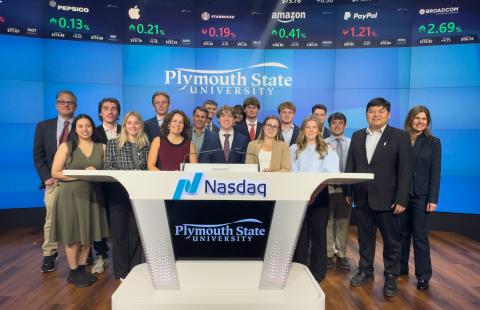News
New three-year, four-year degree and certificate programs address the critical need for expertise in a rapidly expanding field
Cybercrime continues to grow as a significant global threat, and cyber-attacks are becoming more complex and unpredictable. A World Economic Forum rep...
Learn More
Dear PSU Community:
On Wednesday afternoon, we had the opportunity to discuss concerns raised by some faculty, staff and students at the Faculty Se...
Learn More
Three-year, $232,000 grant from the Davis Educational Foundation will help structure the evolution of innovative learning and knowledge initiative
Plymouth State University has received a significant grant to support its efforts to remake instructional design, teaching and learning on its campus....
Learn More
Attract, equip and retain. That may sound like the motto of a certain reality show, but it has also become bywords for the University System of New Ha...
Learn More
Congratulations to all students on the President’s and Dean’s Lists for your diligent work and academic accomplishments this semester. Keep it up! Ple...
Learn More
Students gain rare, firsthand insights into the world’s two largest stock exchanges
The Plymouth State University Finance Club’s unforgettable trip to the New York Stock Exchange (NYSE) and Nasdaq provided students with rare, firsthan...
Learn More
Hyde Hall, home of the University’s School of Business, is in the final year of a $38 million makeover. Completed sections have been enthusiastically ...
Learn More
Alumni are environmental and sustainability leaders on the local, state, and national levels in diverse positions and settings. All credit the Univers...
Learn More
Outdoor Experiences Offer Transformational Opportunities
Serving as an Outdoor Experiences coordinator has developed my skills and creativity beyond belief. I owe much of this to Professor Craig Paiement, wh...
Learn More
Shaped in spirit and place between the White Mountains and the Lakes Region of New Hampshire, Plymouth State University offers the perfect springboard...
Learn More











